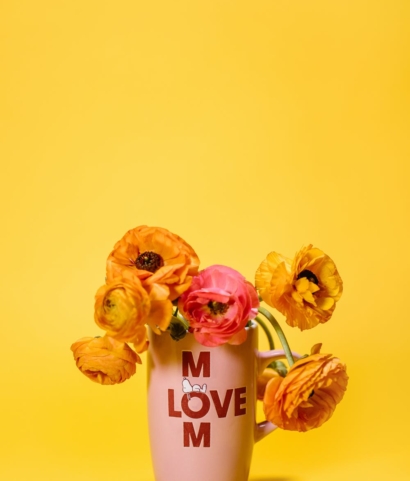Keep the Mother in Every Day
Mother’s Day is upon us again. Cards, flowers, and brunch in bed will ensue. What began as a day to mark the work of pacifist mothers who were weary of sending their boys off to be cannon fodder has (unshockingly) fallen prey to the excesses of capitalism. Mothers in America have long used their status as mothers to advocate for the social good: suffrage, temperance, advocacy for legislation that addresses drunk driving and common-sense gun laws, and, yes, anti-war efforts are all part and parcel of this.
Extending this work, Sara Ruddick wrote in Maternal Thinking: Toward a Politics of Peace that anyone can mother, including men. The goal was to elevate the moral impetus of idealized mothering for the social good, but this remains a troubling concept, not because men can’t be caring and nurturing, but because this work is then labeled feminine when it is done. Caring and affectionate fathers are fathering (as awkward as the term is), not mothering.
This speaks to a much larger conversation that has long simmered in my field of matricentric feminism and has been gaining media coverage, most notably when JAMA chose to discuss “birthing bodies” rather than mothers. We were being asked to consider whether the terms “mother” and “father” are exclusionary. The twittersphere lit up.
Recently, I was reading a preview copy of Kate Mangino’s book, Equal Partners, which is excellent, though full disclosure, she is a friend of mine. She argues for the use of parent instead of mother or father. I very much see the potential in this shift, a shift that seems to be gaining traction, but I could not disagree more.
First, let me be very, very clear. I support trans rights in every regard. Trans parents face obstacles that I, as a cisgender woman, will never face: medically, professionally, legally, socially, religiously and more. We should all be marching in the streets to combat the disproportionate levels of violence this community faces as well as the soft biases that shape too much of their daily lives. My family celebrates our nonbinary child, and we are well-versed in checking pronoun preference of their peers.
That aside, I will continue to use “mother” and “father” because there are differences between the two. These differences are often the result of archaic systems of privilege that have shaped sexism, the patriarchy, and, yes, the institution of motherhood, as Adrienne Rich called it.
At work, mothers face a wage penalty, where as men get a fatherhood bonus. More than 80% of single parent families (which is about 40% of US families) are headed by women. Mothers face a XX fold higher risk of experiencing poverty, food insecurity, and/or homelessness. Nearly 5 million women left the workface last year due to care demands. Cisgender women (and transmen) are the ones who deal with the challenges of pregnancy, childbirth, caesareans, nursing, miscarriage, IVF treatments, post-natal depression and anxiety, and myriad other biological issues related to reproduction. Women of color experience all of these issues even more acutely.
When we talk about parents instead of mothers this all gets erased. Mothers simply have more skin in the game on this, and we need to organize politically to ensure that these inequalities get addressed. I want cisgender men to be part of this fight, but we cannot overlook who is really most impacted. I find the use of “parents” to be akin to proclaiming “all lives matter.” Of course all lives matter, but saying this instead of Black Lives Matter discredits the extreme ways Black (and brown) bodies are oppressed in our legal and social systems as a result of the color of their skin.
As a maternal scholar for nearly twenty years, I have engaged in many thorny discussions about the term mother. We have been asked to thread a needle whose eye has been narrowed by anti-essentialism theories that aim to divorce social expectations of women from their biological sex. There was and is good reason for maintaining an anti-essentialist perspective, and yet, motherhood muddies the alluring clarity.
There absolutely must be space for tranwomen and others who identify as mothers in any thriving advocacy group, but erasing mothers from the conversation will not be what changes rights for trans folks, including trans mothers and fathers. Instead, we will diminish the efficacy of the work that must be done quickly to address the massive equity gaps mothers face medically, legally, economically, and socially.
I look forward to celebrating a Parent’s Day rather than a Mother’s Day, as this will mean we are celebrating equal standing together. We’re not there yet, though, not even close.
